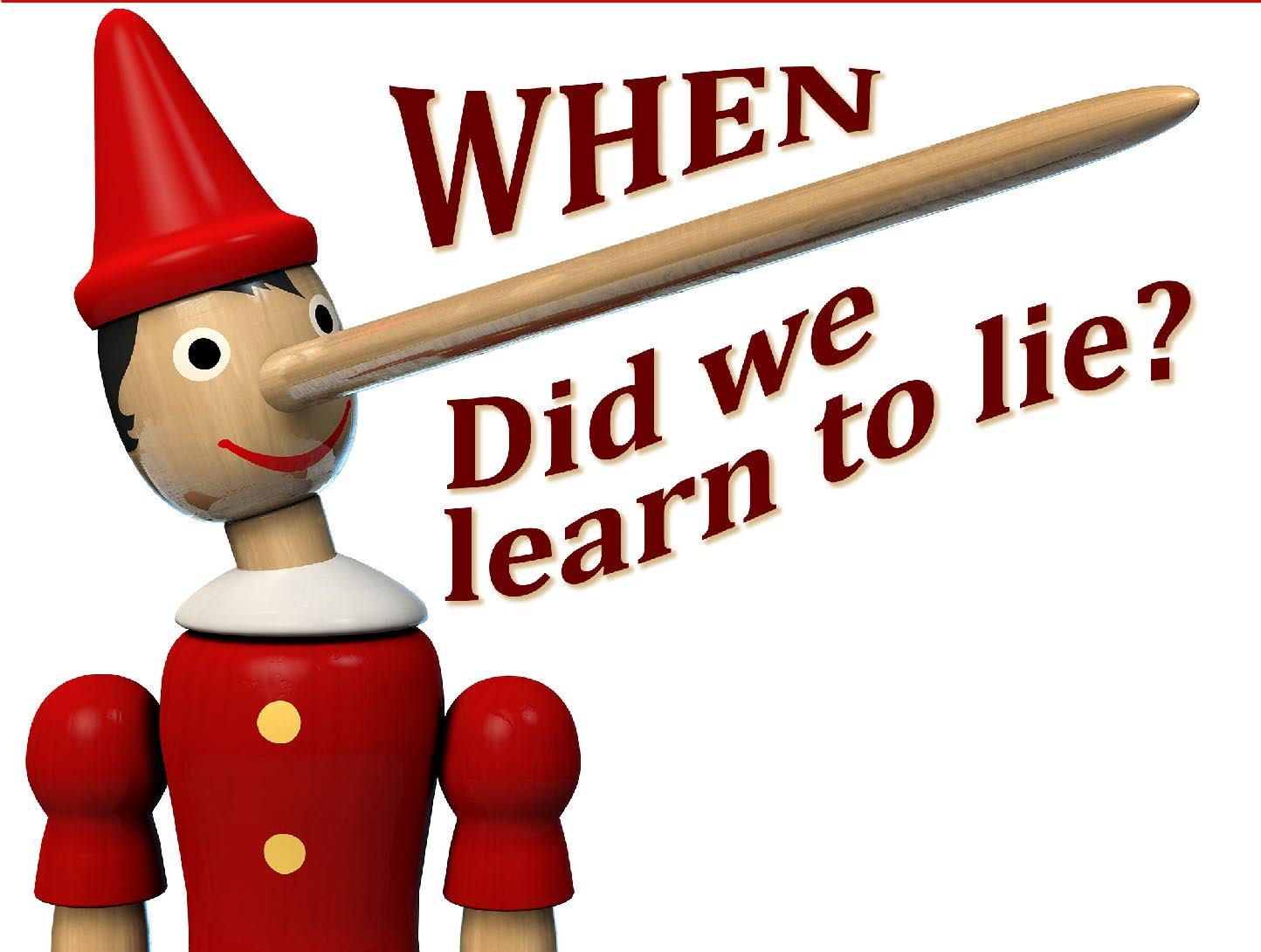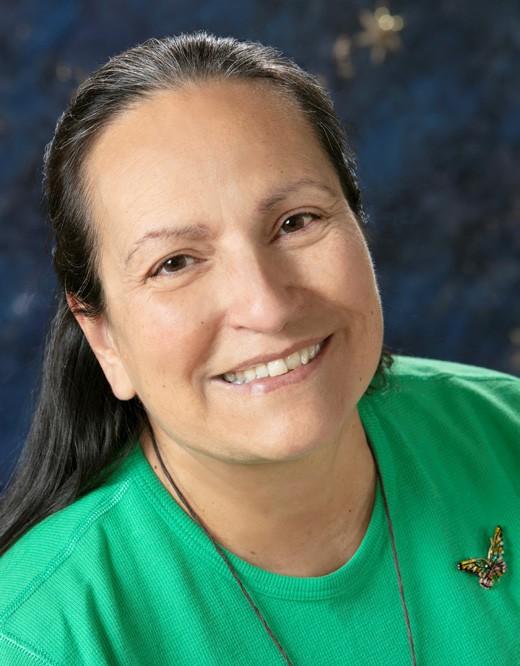
8 minute read
Very Reverend Michael Demkovich, O.P.: When Did We Learn to Lie?
By Very Reverend Michael Demkovich, OP, Episcopal Vicar for Doctrine & Life
s a child I wastaught “Thou shalt not lie” and that meant I should always tell the truth. When my little friends and I Afound one ofus lying I recall us chanting “Liar, liar, pants on fire, nose is longer than a telephone wire.” The story of Pinocchio also taught us to not tell lies. But that doesn’t mean we didn’t tell our share of lies. I know that I did lie mostly because I thought lying was better than getting in trouble. At the time it seemed safe but somehow my parents could detect my lies. So how did they know? How could they tell I was lying? More importantly, how can we tell when
someone is lying?
First off, the key is recognizing there is truth and we are best served by knowing the truth. But what is truth? Thomas Aquinas tells us truth is “Veritas est adaequatio rei et intellectus” (“Truth is the correspondence of things and intellect”). Our knowledge of a thing is true because it matches or corresponds with reality itself. This is the gold standard of truth telling and it is essential to our common good. Truth telling is a moral task that defines a person’s integrity and a society’s justice. This is so important that in the Genesis account the fall of humanity came about because of a grand lie that created doubt -- “Did God really say…?” Doubt and deception, suspicion and mistrust, are the tools that undermine reality and truth. The Master Lie Teller always uses deception so we think the lie is truer than truth itself, the counterfeit more real than the masterpiece. The serpent deceived humanity saying “that’s not true” and sowing doubt, “God said that because….” Calumny, creating doubt and suspicion by slander and defamation, remains the Great Lie that undermines and destroys human trust and creates enmity. The danger in lying is that it becomes addictive and the lie distorts reality itself. The old saying, “Oh what a tangled web we weave when first we practice to deceive” is true, because it names the real price of deception.
I fear we have come to the point in American society where truth is
more and more difficult to know. What is alarming is the implication of that statement. A culture of lies is a culture that denies reality. G. K. Chesterton’s classic The Screwtape Letters advises Wormwod, the inept apprentice devil tempter, to use sex, pride, gluttony, and war to keep people from the truth, from knowing God and the Good. Lies undermine trust because instead of relating us to reality itself they rather create alienation and division. Now, more than ever, we need to discover the importance of our human relatedness to reality but this means we must peal back the layers of lies and take down the walls of division so we can again walk humbly with our God. What will this require? What is the great lie of our age?
Instead of truth as correspondence to reality, modern ‘truth theories’ simply get rid of reality. The deception instead says truth is nothing more than a coherence to what we believe to be true, is true -- a fetus isn’t human. Or, something is true if it is pragmatic or useful. If it works it must be true, the end justifies the means. It is true if it gets you to think or do as I want you to do -- rioting and violence are justifiable if I get what I want. Both undermine and devalue what is really real. So you see, truth as “coherence” and truth as “utility” put walls between the human project and what is really real. Instead, reality is reduced to our ideology, whatever we say is true is true, or it is reduced to its utility, if it works it is true. But reality is not so easily distorted or deformed. Reality is raw existence, our encounter with creation and a Creator. Aquinas tells us that in order to know a thing rightly we must know it in its causes. So why do we, as anation, seem to lie as much as we do?
I think the root lie plaguing us all is our failure to realize the reality of life in its fullness. The COVID pandemic has certainly opened our eyes to the precious significance of life and how we are meant to live. The dignity and sanctity of human life, from womb to tomb, is reallyreal, it is truly true. Life is a precious gift that is “created” beyond our comprehension and has its “ultimate end” beyond the pall of death. To deny this is to choose what St. John Paul called a “cultureof death.” It is the ideologue who denies the reality of the unborn, it is the pragmatist who denies the reality of the poor, the infirmed, the alien, the aging, and the dying. Once a person abandons the hard task of striving to be really real, of seeing being as being, then lies and lying come easy to that person and it bankrupts the very meaning and worth of a person’s life. The political activist Saul Alinsky’s ideological and pragmatic Rules for Radicals (1971) has become the blueprint for so-called social change. He has given, what I think can fairly be called, a list of how to lie, confuse or deceive your opponent, in order to get people to think the way you want. Or, how to create doubt and suspicion so people do what you want. These rules have become all too common and sadly most of us are unaware of just how pervasive they are in political discourse and social media today. The requirement of a good lie is to create credible doubt, the brilliance of a great lie, is to masquerade as being truer than true. For that, it requires you divorce a person from reality (that’s not true, did God really say…) and devalue itwith doubt (God said thatbecause…).
Sadly many people today have become masterful liars, that is to say they have abandoned the demands of relating to reality. Alinsky’s rules advocate deceit (rule #1), confusion (#2) and fear (#3), ridicule and isolation of your opponent (#5), the use of tactics that seem enjoyable to others, that do not drag on, and that keep constant pressure on your opponent (# 6, 7, 8), that threaten and terrify your opponent (#9), criticizes your opponent’s position but does not offer alternatives (#10), and attacks and isolates your opponent (#11). I find this list frightening because I see it being played out time and time again as a politics of power and acontrol technique that alienates us from genuine human relationship and from reality itself.
Life, dignity and respect for all life, at all aspects of life, grounds us in reality, which is the truly true. Murder, violence, torture, and war are naturally abhorrent to us because they deny the real wonder and mystery of life itself. When they become acceptable or common place we are no longer being real! The more
Very Reverend Michael Demkovich,OP, Episcopal Vicar for Doctrine & Life

one is connected to life itself, the more one senses the value and worth of life itself, then the more one knows the premier value of truth, our rightly relating to reality. But once we believe the lie that life has no value, then lying becomes easier and easier to do. If a person can lie about the reality of human life, they can very easily lie about everything. Lies only serve to alienate and divide us from the shared common life of the human family. We see this manifested in politicians, protestors and reporters who deny the sacredness of life and in that lie, life itself become a grand lie, a false narrative we have to tell ourselves in legislation and in print. The reality is that human life is a diverse and wonderful relationship of differences. The differences are real and vital and this means that truth is a multi-faceted mystery and we must live in that reality. Unity is not conformity, disagreement is not division, purpose is not utility, and reality is not ideology. As a nation, lies rob us of the real gift and joy of humanity, being truly and reallyone. The Great Lie Teller relishes in having us cohere to an ideology and cling to the utility of things, creating a false value and obscuring their true worth. The Great Lie Teller dreads us asking the question “What is real?” This unsettles every liar the most!
GO D
Welcome IsraelaGarcia, theNewCCHDIntern
By Israela Garcia, CCHD Intern
Greetings to all my brothers and sisters in Christ! I have owned and operated Baila! Baila!, Inc. since 1990 which is based in Albuquerque, NM. I currently work in the capacity of President and Artistic Director of Baila! Baila! Dance Academy. I also teach Traditional Mexican Folk Dance in the Albuquerque Public School system as a contractor. I am a professed sister in the Ordo Franciscanus Saecularis (OFS) - Third Order Franciscans - serving as Vice Minister of the St. Anthony Fraternity in Albuquerque under Our Lady of Guadalupe Empress Of The Americas Region #75. I am in the process of opening a religious retreat center in the North Valley of Albuquerque. I am happy and humbled to be able to serve the Archdiocese of Santa Fe through the offices of the Catholic Campaign for Human Development (CCHD).

As an intern for CCHD, I look forward to ministering to our very diverse community. With your help and the help of the Holy Spirit, I know that we can move forward as a community through Catholic social teaching and tackling the challenges that our brothers and sisters in need face on a daily basis. At your request, we can provide a Zoom presentation on Catholic social teaching and poverty for your youth/young adult group, confirmation group or adult faith formation group. I look forward to meeting as many of you as possible. You can reach me at igarcia@archdiosf.org, or our office at 505.831.8235.











